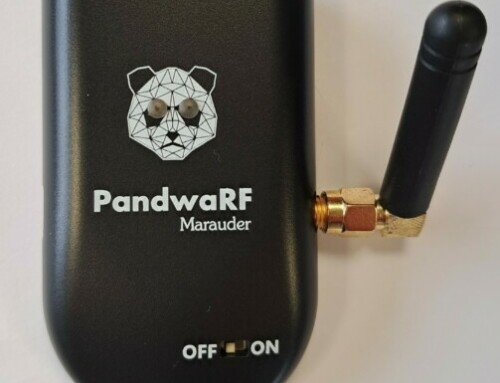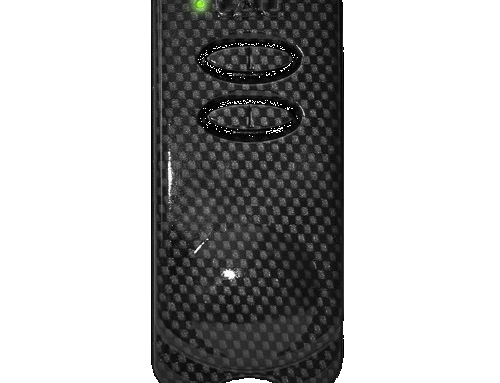In the latest releases, Spectrum Analyser (SpecAn) usability has been greatly improved.
Here are some of the new SpecAn features:
Frequency sliding
PandwaRF spectrum analyzer now supports frequency sliding while running. This allows user to have a wider view of RF signals which are outside of the initially selected RF band.
While user slide left or right through side frequencies, the previous points (frequency/RSSI) points are kept in memory to construct a wider view of the RF landscape.
Highest RSSI selection
When SpecAn is started, it will automatically select the frequency with the highest RSSI value (Received signal strength indication).
No more need to setup the frequency manually, it is done for you on-the-fly while RF band is scanned. Each highest RSSI peak detected also updates the frequency in the other pages (RX/TX, Brute Force, De Bruijn, etc…) and you can now directly receive or transmit on this frequency.
Clicking on the graph will disable automatic highest RSSI selection, allowing you to set the frequency manually.
Automatic frequency finder
The PandwaRF Rogue also has an automatic frequency finder integrated into the spectrum analyser.
When “Auto frequency finder” is enabled in the SpecAn page, the graph will automatically detect the frequency used and switch to the band (315/433/868/915, …) with highest RF activity.
This is very useful when you want to quickly find the frequency used by your remote.
SpecAn in USB mode
If you connect to your PandwaRF using an USB OTG cable, you will notice that the SpecAn refresh rate is much higher than in Bluetooth.
- While connected in BLE, we have observed (depending on your phone) an average of 10 packets / second, with 52 points per packet.
- In USB the measurement rate can go up to 25 packets per second, with up to 200 points per packet.
More information about PandwaRF Spectrum Analyser can be found here.
- You can find the solution to the most common PandwaRF issues in our wiki.
- Make sure to also check the PandwaRF forum and our Gitter chat room.
- If you still have the issue after doing so, please report it using our tracking system.








